Dollar General faces new penalties for store safety issues

Dollar General is facing another $1.68 million in fines after government safety inspectors found violations at four of the chain’s stores in Alabama, Florida, and Georgia, the federal regulators announced Monday. During inspections in April 2022, the Occupational Safety and Health Administration found dirty and disorderly storage areas and materials stacked unsafely at locations in Mobile and Grove Hill, Alabama; Tampa, Florida; and Dewy Rose, Georgia. OSHA said those conditions put workers at risk of slipping, tripping, and getting struck by falling objects. The company was also cited for fire hazards, including failing to keep exit routes and electrical panels clear and unobstructed and neglecting to mount and label fire extinguishers. The announcement came two months after OSHA announced $1.3 million in proposed penalties for similar violations at three of Dollar General stores in Georgia. OSHA said Dollar General has faced more than $9.6 million in initial penalties after 182 inspections since 2017. “We will use our full enforcement powers to hold Dollar General accountable for its ongoing pattern of behavior until they show that they take worker safety seriously,” said Assistant Secretary for Occupational Safety and Health Doug Parker in a statement. Dollar General, based in Goodlettsville, Tennessee, has 15 business days to comply or contest the penalties. The company did not immediately reply to a request for comment. Republished with the permission of The Associated Press.
Joe Biden administration officially withdraws vaccine rule
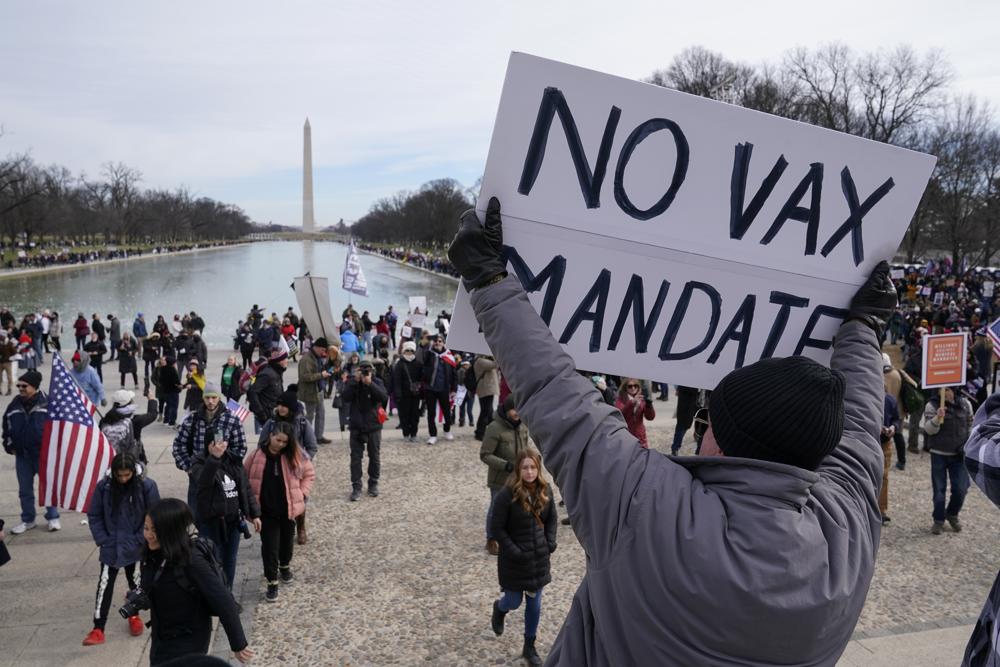
The Biden administration has officially withdrawn a rule that would have required workers at big companies to get vaccinated or face regular COVID testing requirements. The Occupational Safety and Health Administration confirmed the withdrawal Tuesday. But the agency said it still strongly encourages workers to get vaccinated. In early November, OSHA announced a vaccine-or-test mandate for companies with at least 100 employees. The rule __ which would have impacted more than 80 million U.S. workers __ was originally set to go into effect on January 4. But numerous states and business groups challenged the rule in court. On January 13, the Supreme Court halted the plan. In a 6-3 ruling, the court’s conservative majority concluded that OSHA had overstepped its authority. “OSHA has never before imposed such a mandate. Nor has Congress,″ the court’s majority wrote. ”Indeed, although Congress has enacted significant legislation addressing the COVID-19 pandemic, it has declined to enact any measure similar to what OSHA has promulgated here.” The justices left in place a vaccine mandate for health care providers who receive federal Medicare or Medicaid funding. That rule affects 10.4 million workers. U.S. corporations have been split over whether to mandate employee vaccinations. United Airlines began requiring vaccines in August; the company says 99% of its workers have been vaccinated or have requested medical or religious exemptions. Tyson Foods, which also announced a mandate in August, says 96% of its workers were vaccinated by a November 1 deadline. But other big businesses, including Starbucks and General Electric, scrapped previously announced vaccine mandates for their employees after the Supreme Court’s ruling. OSHA indicated that the rule could return in some form. While it is no longer an enforceable standard, it remains a proposed rule, OSHA said. For now, the agency said it will prioritize the health care mandate. David Michaels, an epidemiologist and former OSHA administrator who now teaches at George Washington University, said the agency could consider a new rule that would include other measures designed to prevent the spread of COVID-19 in workplaces, such as requiring face masks, distancing, and better ventilation systems.
Supreme Court halts COVID-19 vaccine rule for U.S. businesses

The Supreme Court has stopped a major push by the Biden administration to boost the nation’s COVID-19 vaccination rate, a requirement that employees at large businesses get a vaccine or test regularly and wear a mask on the job. At the same time, the court is allowing the administration to proceed with a vaccine mandate for most health care workers in the U.S. The court’s orders Thursday came during a spike in coronavirus cases caused by the omicron variant. The court’s conservative majority concluded the administration overstepped its authority by seeking to impose the Occupational Safety and Health Administration’s vaccine-or-test rule on U.S. businesses with at least 100 employees. More than 80 million people would have been affected, and OSHA had estimated that the rule would save 6,500 lives and prevent 250,000 hospitalizations over six months. “OSHA has never before imposed such a mandate. Nor has Congress. Indeed, although Congress has enacted significant legislation addressing the COVID–19 pandemic, it has declined to enact any measure similar to what OSHA has promulgated here,” the conservatives wrote in an unsigned opinion. In dissent, the court’s three liberals argued that it was the court that was overreaching by substituting its judgment for that of health experts. “Acting outside of its competence and without legal basis, the Court displaces the judgments of the Government officials given the responsibility to respond to workplace health emergencies,” Justices Stephen Breyer, Elena Kagan, and Sonia Sotomayor wrote in a joint dissent. President Joe Biden said he was “disappointed that the Supreme Court has chosen to block common-sense life-saving requirements for employees at large businesses that were grounded squarely in both science and the law.” Biden called on businesses to institute their own vaccination requirements, noting that a third of Fortune 100 companies already have done so. When crafting the OSHA rule, White House officials always anticipated legal challenges — and privately, some harbored doubts that it could withstand them. The administration nonetheless still views the rule as a success at already driving millions of people to get vaccinated and encouraging private businesses to implement their own requirements that are unaffected by the legal challenge. The OSHA regulation had initially been blocked by a federal appeals court in New Orleans, then allowed to take effect by a federal appellate panel in Cincinnati. Both rules had been challenged by Republican-led states. In addition, business groups attacked the OSHA emergency regulation as too expensive and likely to cause workers to leave their jobs at a time when finding new employees already is difficult. The National Retail Federation, the nation’s largest retail trade group, called the Supreme Court’s decision “a significant victory for employers.” The vaccine mandate that the court will allow to be enforced nationwide scraped by on a 5-4 vote, with Chief Justice John Roberts and Justice Brett Kavanaugh joining the liberals to form a majority. The mandate covers virtually all health care workers in the country, applying to providers that receive federal Medicare or Medicaid funding. It affects 10.4 million workers at 76,000 health care facilities as well as home health care providers. The rule has medical and religious exemptions. Biden said that decision by the court “will save lives.” In an unsigned opinion, the court wrote: “The challenges posed by a global pandemic do not allow a federal agency to exercise power that Congress has not conferred upon it. At the same time, such unprecedented circumstances provide no grounds for limiting the exercise of authorities the agency has long been recognized to have.” It said the “latter principle governs” in the healthcare arena. Justice Clarence Thomas wrote in dissent that the case was about whether the administration has the authority “to force healthcare workers, by coercing their employers, to undergo a medical procedure they do not want and cannot undo.” He said the administration hadn’t shown convincingly that Congress gave it that authority. Justices Samuel Alito, Neil Gorsuch, and Amy Coney Barrett signed onto Thomas’ opinion. Alito wrote a separate dissent that the other three conservatives also joined. Decisions by federal appeals courts in New Orleans and St. Louis had blocked the mandate in about half the states. The administration already was taking steps to enforce it elsewhere. More than 208 million Americans, 62.7% of the population, are fully vaccinated, and more than a third of those have received booster shots, according to the federal Centers for Disease Control and Prevention. All nine justices have gotten booster shots. The courthouse remains closed to the public, and lawyers and reporters are asked for negative test results before being allowed inside the courtroom for arguments, though vaccinations are not required. The justices heard arguments on the challenges last week. Their questions then hinted at the split verdict that they issued Thursday. A separate vaccine mandate for federal contractors, on hold after lower courts blocked it, has not been considered by the Supreme Court. Republished with the permission of the Associated Press.
“Individual freedoms and rights are of the utmost importance” Richard Shelby opposes Joe Biden mandates.
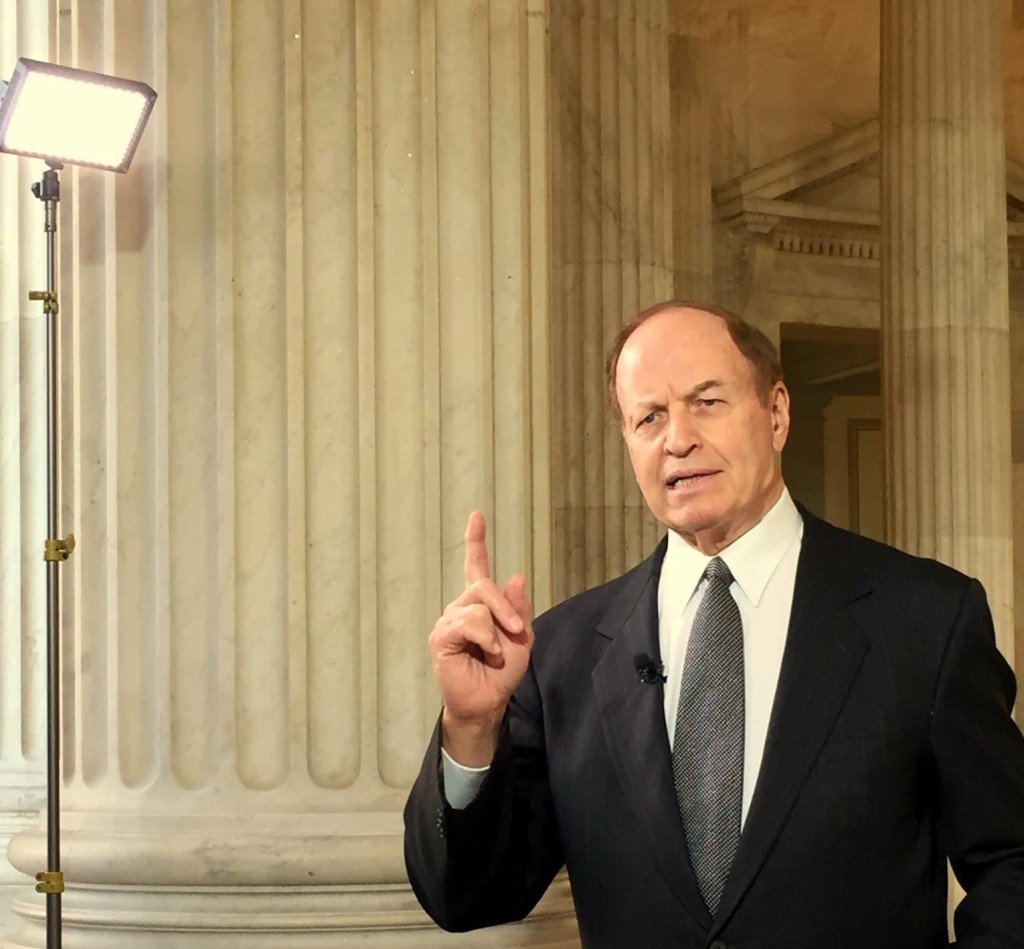
The Senate approved a resolution to nullify the Biden administration’s Covid-19 vaccine mandate on Wednesday. The mandate requires businesses with 100 or more employees must have their employees vaccinated or be tested weekly. This week, a federal court granted Alabama’s motion for an injunction against the vaccination requirement. Indiana Senator Mike Braun sponsored the Congressional Review Act, which passed the Senate by a vote of 52-48. The Congressional Review Act (CRA), which was signed into law in 1996, is a tool Congress may use to overturn rules issued by federal agencies. The CRA requires agencies to report on their rulemaking activities to Congress and provides Congress with a special set of procedures to consider legislation to overturn those rules. Senator Richard Shelby issued a statement expressing appreciation for the efforts to overturn the mandate arguing the mandate is government overreach. “As I’ve said before, President Biden’s vaccine mandate violates our constitutional liberties and is federal overreach at its finest. Today I was proud to vote for Senator Braun’s CRA to overturn that mandate. While I urge people to consult with their doctor about getting vaccinated, I believe our individual freedoms and rights are of the utmost importance,” stated Senator Shelby. The CRA would provide fast-track procedures for Congress to consider a joint resolution to overturn an agency’s rule. The bill will head to the House, where it will face opposition from Democrats.
Senate rejects Joe Biden’s vaccine mandate for businesses
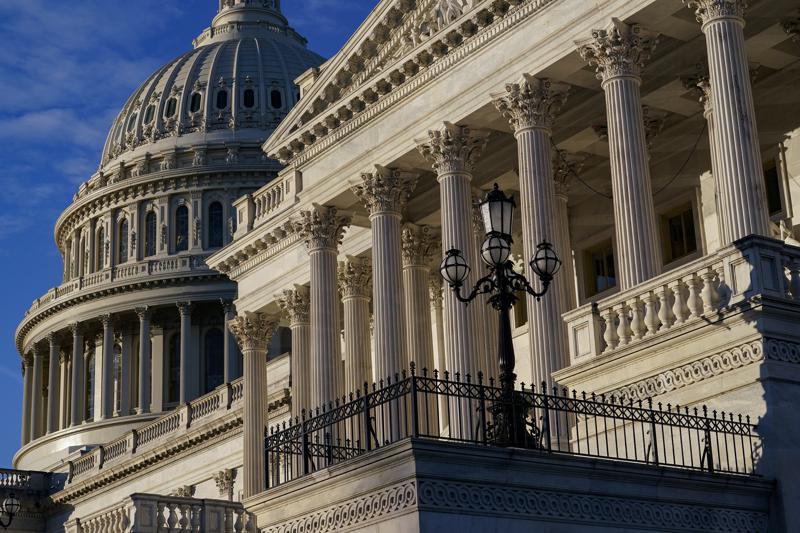
The Senate narrowly approved a resolution Wednesday to nullify the Biden administration’s requirement that businesses with 100 or more workers have their employees be vaccinated against the coronavirus or submit to weekly testing. The vote was 52-48. The Democratic-led House is unlikely to take the measure up, which means the mandate would stand, though courts have put it on hold for now. Still, the vote gave senators a chance to voice opposition to a policy that they say has sparked fears back home from businesses and from unvaccinated constituents who worry about losing their jobs should the rule go into effect. “Every so often Washington D.C. does something that lights up the phone lines. This is one of these moments,” said Sen. Steve Daines, R-Mont. At home, he said, “this issue is what I hear about. This issue is a top-of-mind issue.” Lawmakers can invalidate certain federal agency regulations if a joint resolution is approved by both houses of Congress and signed by the president, or if Congress overrides a presidential veto. That’s unlikely to happen in this case. Under the rule, private-sector companies with 100 or more workers must require their employees to be fully vaccinated against COVID-19 or be tested for the virus weekly and wear masks on the job. The Occupational Safety and Health Administration said it would work with companies on compliance but would fine them up to more than $13,000 for each violation, though implementation and enforcement is suspended as the litigation unfolds. Senate Majority Leader Chuck Schumer, D-N.Y., said Americans who have refused to get vaccinated are the biggest impediment to ending the pandemic. He implied that some of the resistance to mandated vaccines is based on politics. “Some of the anti-vaxxers here in this chamber remind me of what happened 400 years ago when people were clinging to the fact that the sun revolved around the Earth. They just didn’t believe science. Or 500 years ago when they were sure the Earth was flat,” Schumer said. Schumer said social media has played a role in spreading falsehoods about the vaccine, and “so has the far right.” He urged senators to vote against the resolution, sponsored by Sen. Mike Braun, R-Ind. Republicans said they are supportive of the vaccine, but that the mandate amounts to government overreach. “His mandates are under fire in the courts. Main Street job creators are complaining against it, and tonight, the U.S. Senate must send a clear message: back off this bad idea,” Braun said. Some argued that the mandate may even contribute to people not getting vaccinated. “I think, actually, the mandate has made it worse in terms of hardening people who don’t want to be told what to do by the government,” said Sen. John Barrasso, R-Wyo. Sen. Shelley Moore Capito, R-W.Va., said a telephone town hall she recently held with constituents made clear they are concerned about keeping their a job if the mandate goes into effect. “If you look at my state, 40% of my state’s workforce stands to lose their job under this mandate,” Capito said. “It will be a killer to our economy.” In the end, two Democratic lawmakers voted with 50 Republicans to void the mandate, Sens. Joe Manchin of West Virginia and Jon Tester of Montana. Manchin had said in a tweet that he does not support any federal vaccine mandate for private businesses. Tester’s office said his opposition is based on conversations with Montana businesses who “expressed deep concerns about the negative effect on their bottom lines and our state’s economy during this fragile recovery period.” Sen. Patty Murray, D-Wash., sided with the Biden administration, noting that the pandemic is still raging and that deaths are overwhelmingly among the unvaccinated. “How on earth does it make sense right now to undercut one of the strongest tools that we have to get people vaccinated and stop this virus?” Murray said. “In what world is that a good idea?” The White House released a statement earlier this week stating that Biden’s advisers would recommend he veto the resolution in the unlikely event it makes it to his desk. “The president wants to see Americans back on the job, and Americans back at work should not face risk from those who are not vaccinated and who refuse to be tested,” the White House said. Deaths in the United States stemming from COVID-19 are running close to 1,600 a day on average. The overall U.S. death toll less than two years into the pandemic could soon reach 800,000. Republished with the permission of the Associated Press.
Judge stops federal COVID-19 vaccine mandate in Medicare, Medicaid facilities in 10 states
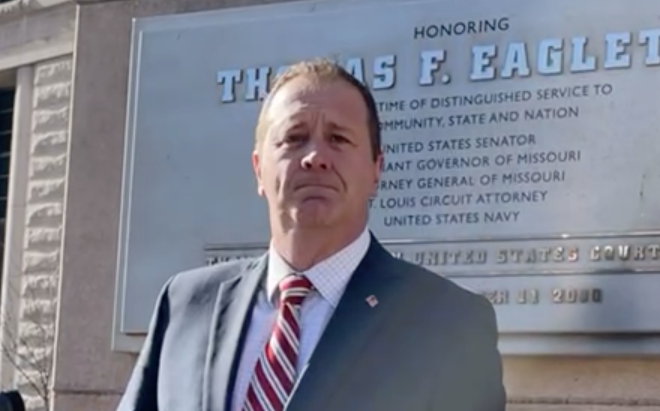
U.S. District Judge Matthew T. Schelp on Monday ordered a preliminary injunction against the Biden Administration, stopping mandated COVID-19 vaccinations for health care workers in Centers for Medicare and Medicaid Services (CMS) facilities. “Because it is evident CMS significantly understates the burden that its mandate would impose on the ability of healthcare facilities to provide proper care, and thus, save lives, the public has an interest in maintaining the ‘status quo’ while the merits of the case are determined,” Schelp wrote in a 32-page memorandum and order in the U.S. District Court in the Eastern District of Missouri. Missouri Republican Attorney General Eric Schmitt led a 10-state coalition filing the lawsuit on November 5 to stop the CMS vaccine mandate. On the courthouse steps in St. Louis, Schmitt, a candidate for the seat of retiring Republican U.S. Senator Roy Blunt, stated many will benefit from the ruling. “This is a significant ruling and the first of its kind in the country,” Schmitt told reporters. “What the court said today was CMS and the Biden administration has no statutory authority to do this, none whatsoever.” Starting in late October, Schmitt led coalitions of states in filing three lawsuits against federal vaccine mandates – for federal contractors and federally contracted employees, for the Occupational Safety and Health Administration’s mandate on private employers with 100 or more employees, and CMS. The Fifth U.S. Circuit Court of Appeals in New Orleans blocked the private-sector OSHA mandate earlier this month. Schmitt said Monday’s ruling will help all Missourians and all served in CMS facilities. “Our office may have led the charge on this, but it is the health care workers in Missouri and across the country, it’s the rural hospitals here and elsewhere facing certain collapse due to this mandate, and it’s the patients of those hospitals who are the real winners today,” Schmitt said. Judge Schelp stated five times in the ruling that it’s likely Schmitt and the coalition will ultimately succeed if the ruling is appealed. The ruling only applies to the 10 states in the lawsuit – Alaska, Arkansas, Iowa, Kansas, Missouri, Nebraska, New Hampshire, North Dakota, South Dakota, and Wyoming. “I would expect this to be appealed and I would expect this to go all of the way to the Supreme Court,” Schmitt said. “But the fact is we won.” The ruling stated CMS lacked clear authorization from Congress to mandate the COVID-19 vaccine. Currently, CMS doesn’t require any vaccinations for health care workers. “CMS failed to adequately explain its contradiction to its long-standing practice of encouraging rather than forcing – by governmental mandate – vaccination,” Schelp wrote. “For years, CMS has promulgated regulations setting the conditions for Medicare and Medicaid participation; never has it required any vaccine for covered facilities’ employees – despite concerns over other illnesses and their corresponding low vaccination rates.” Schelp also stated CMS violated its own regulations by not accepting comments on policies. “Moreover, the failure to take and respond to comments feeds into the very vaccine hesitancy CMS acknowledges is so daunting,” Schelp wrote. Schelp highlighted the vaccine mandate’s negative impact on staffing at rural hospitals. “As an example, for a general hospital located in North Platte, Nebraska, implementation of the mandate would result in the loss of the only remaining anesthesiologist,” Schelp wrote. “Understandably, without an anesthesiologist, there could be no surgeries – at all. Thus, such a loss irreparably causes a cascading effect on the entire facility and a wide range of patients. Other examples show the mandate’s far-reaching implications not just on the administration of health care itself, but the functioning of the facilities in general.” Schmitt said the virus will always be present and the federal government needs to understand citizens and their rights. “The truth is COVID is with us and there is always going to be a variant,” Schmitt said. “But I think the people have had enough of the government locking people down. They have had enough of government instituting mask mandates and vaccine mandates. Every time there’s an overreach, we’re going to push back.” Bureaucrats who have never driven the back roads of Missouri or visited its rural hospitals have no idea of the effects of the vaccine mandate, Schmitt said. “Here in flyover country, we’ve had enough and we’re going to fight back every single time they try to take our freedoms away,” Schmitt said. By Joe Mueller | The Center Square Republished with the permission of The Center Square
U.S. mandates vaccines or tests for big companies by January 4

Tens of millions of Americans who work at companies with 100 or more employees will need to be fully vaccinated against COVID-19 by January 4 or get tested for the virus weekly under government rules issued Thursday. The new requirements, which were first previewed by President Joe Biden in September, will apply to about 84 million workers at medium and large businesses, although it is not clear how many of those employees are unvaccinated. The Occupational Safety and Health Administration regulations will force the companies to require that unvaccinated workers test negative for COVID-19 at least once a week and wear a mask while in the workplace. OSHA left open the possibility of expanding the requirement to smaller businesses. It asked for public comment on whether employers with fewer than 100 employees could handle vaccination or testing programs. Tougher rules will apply to another 17 million people who work in nursing homes, hospitals and other facilities that receive money from Medicare and Medicaid. Those workers will not have an option for testing — they will need to be vaccinated. Workers will be able to ask for exemptions on medical or religious grounds. OSHA said companies that fail to comply with the regulations could face penalties of nearly $14,000 per violation. It was unclear how OSHA planned to enforce the rules: Even counting allied regulators at the state level, the agency has only 1,850 inspectors to oversee 130 million workers at 8 million workplaces. A senior administration official said OSHA will target companies if it gets complaints. The release of the rules followed weeks of regulatory review and meetings with business groups, labor unions and others. The regulations form the cornerstone of Biden’s most aggressive effort yet to combat the spread of COVID-19, which has killed more than 740,000 people in the U.S. OSHA drafted the rules under emergency authority meant to protect workers from an imminent health hazard. The agency estimated that the vaccine mandate will save more than 6,500 worker lives and prevent more than 250,000 hospitalizations over the next six months. Senior administration officials said the rules preempt conflicting state laws or orders, including those that ban employers from requiring vaccinations, testing or the wearing of face masks. The administration will face an immediate challenge from Republican state officials who are eager to fight Biden in court and in Congress. Senate Republicans immediately launched a petition to force a vote to overturn the vaccine mandate, but with Democrats controlling the chamber, the effort is nearly certain to fail. More than two dozen Republicans serving as state attorneys general have indicated they plan to sue, arguing that only Congress can enact such sweeping requirements under emergency authority. Last week, 19 states sued to stop Biden’s narrower mandate that employees of federal contractors be vaccinated. That requirement was scheduled to take effect December 8, but the administration said Thursday it will be delayed until January 4 to match the requirements on other large employers and health care providers. The rules will require workers to receive either two doses of the Pfizer or Moderna vaccines or one dose of the Johnson & Johnson vaccine by January 4 or be tested weekly. Employees who test positive must be removed from the workplace. The requirements will not apply to people who work at home or outdoors. Companies won’t be required to provide or pay for the tests, but they must give paid time off for employees to get vaccines and sick leave to recover from side effects that prevent them from working. The requirements for masks and paid time off for shots will take effect December 5. The Centers for Medicare & Medicaid Services issued a separate rule requiring vaccination for workers in 76,000 health facilities and home health care providers that get funding from the government health programs. A senior administration official said that several large private health care organizations imposed their own mandates and achieved high vaccination rates — 96% or higher — without widespread resignations. The White House sees the new requirements as a potent tool to winnow down the ranks of the tens of millions of Americans who have thus far refused to get a shot. For weeks, Biden has encouraged businesses not to wait for the OSHA rule to take effect. He has touted businesses that have already announced their own vaccine mandates and urged other companies to follow their lead. Administration officials say those efforts are paying off, with about 70% of the nation’s adults now fully vaccinated. Walmart, the nation’s largest private employer, said in late July it was requiring all workers at its headquarters in Bentonville, Arkansas, as well as its managers who travel within the U.S., to be vaccinated against COVID-19 by Oct. 4. But the company had stopped short of requiring shots for its frontline workers. United Airlines required U.S. employees to get vaccinated or face termination. Only a very small number of its 67,000 workers refused to do so. In August, Tyson Foods told its 120,000 U.S. workers that they must be vaccinated by November 1. A week before that deadline, the company said 96% of its workforce was fully vaccinated. However, some companies have expressed fear that some vaccine-hesitant workers might quit, leaving their workforces even thinner in what is already a tight labor market. Several large business groups complained about the timing of the mandate. Retail groups worried that the requirement could disrupt their operations during the critical Christmas shopping period. Retailers and others also said it could worsen supply chain disruptions. The National Retail Federation suggested that the new rules are not needed because the rolling average number of new daily cases in the U.S. has fallen by more than half since September. “Nevertheless, the Biden administration has chosen to declare an ‘emergency’ and impose burdensome new requirements on retailers during the crucial holiday shopping season,” said David French, a senior vice president for the trade group. The number of new COVID-19 infections in the U.S. is still falling from a summer surge
Congressional leaders send letter to OSHA opposing vaccine mandate
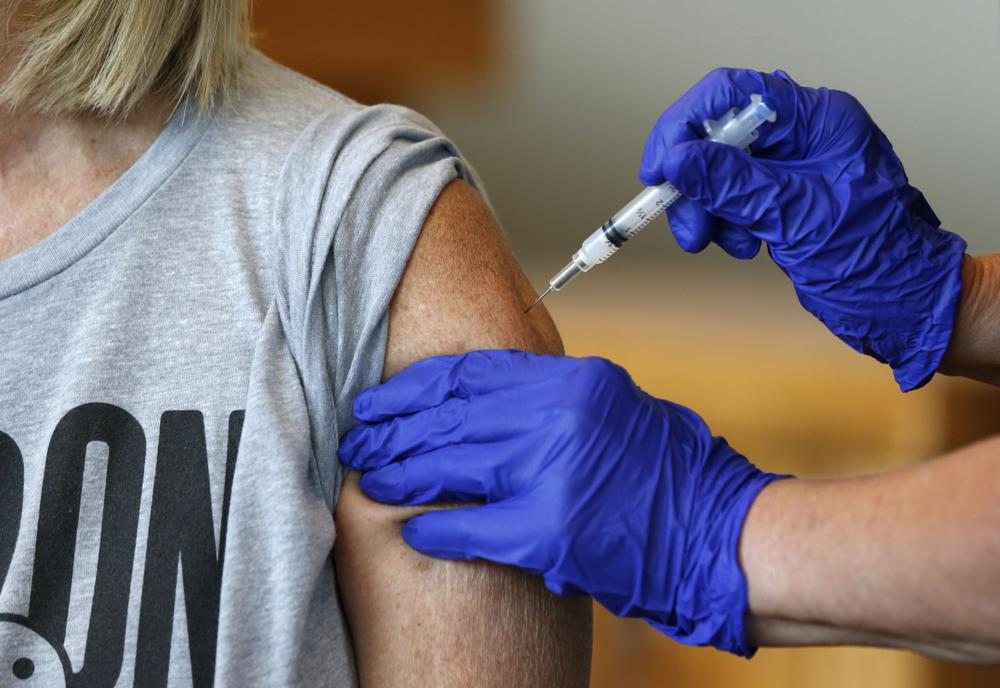
Congressman Gary Palmer (AL-06) and several colleagues sent a letter to Doug Parker, the Assistant Secretary of Labor for Occupational Safety and Health, to oppose a federal vaccine mandate on businesses across the country. Alabama congressmen Mo Brooks and Barry Moore also signed the letter. The letter states, “OSHA has said the spread of COVID-19 presents a grave danger to employees. However, this is not the case. Many employees have either been vaccinated or have achieved immunity naturally, and thus are not in grave danger. Many workplaces are also not in environments where the spread of COVID-19 is a concern, including employees who work from home or who work in outside settings.” The letter also urges the Secretary to make a religious exemption. “While we do not agree that you should finalize this mandate, we urge you to provide a religious exemption to the requirement should you forge ahead and request that you make that commitment in writing.” “Unfortunately, this Administration must be reminded that religious rights and other freedoms are not forfeited during a pandemic,” Palmer stated in a press release. Palmer questioned the legality of the vaccine mandate arguing that religious and other conscience exemptions are the heart of the Constitution. “The employer-employee relationship does not need intervention from a third federal party. Employees need their individual rights to be protected, not trampled upon by the government. I firmly believe this mandate is unconstitutional, and at the very least, we need to defend the rights of individuals who, for whatever deeply held beliefs, decide to refuse it. No one should be forced to choose between providing for their families and violating their conscience. Religious and other conscience exemptions are at the heart of the Constitution, which this Administration and every Member of Congress swore an oath to uphold and defend. This letter from my colleagues and me insists that at the least, individuals’ freedoms must be respected and maintained when regulations on the mandate are finalized and published.” Originally tweeted by Gary Palmer (@USRepGaryPalmer) on November 1, 2021. The Occupational Safety and Health Administration (OSHA) is part of the U.S. Department of Labor. Their mission is to ensure safe and healthful working conditions for workers by setting and enforcing standards and by providing training, outreach, education, and assistance.
U.S. unveils guidance for federal vaccine mandate, exemptions
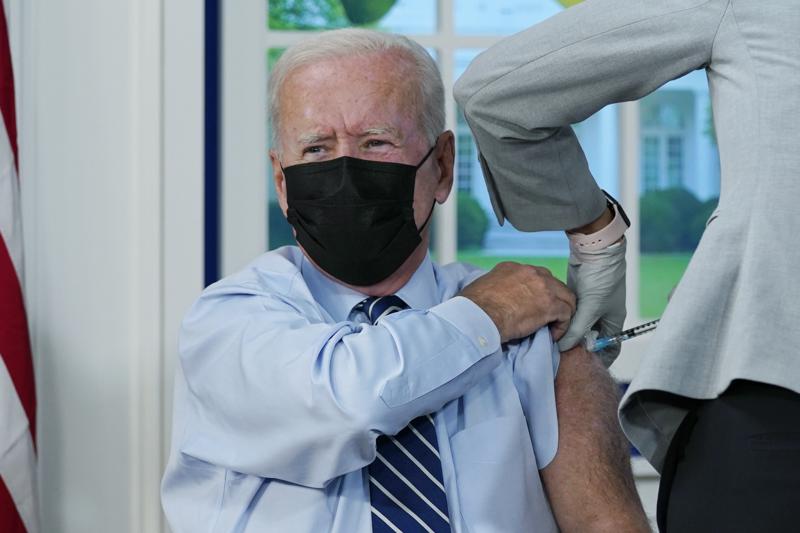
With just weeks remaining before federal workers must be vaccinated against COVID-19, the federal government on Monday outlined procedures for employees to request medical or religious exemptions from President Joe Biden’s mandate. The Office of Management and Budget released the new guidance Monday afternoon ahead of the Nov. 22 deadline for workers to be fully vaccinated, outlining specific medical conditions that would warrant an exemption. Under the guidelines, agencies are to direct workers to get their first shot within two weeks of an exemption request being denied or the resolution of a medical condition. They also make clear that federal agencies may deny medical or religious exemptions if they determine that no other safety protocol is adequate. The Biden administration is drawing on Centers for Disease Control and Prevention guidance to determine approved medical exemptions, including a history of allergic reaction to the vaccines. Other conditions, including being treated with monoclonal antibodies or having a history of multisystem inflammatory syndrome, warrant a 90-day delay in vaccination, in accordance with CDC advice. While the CDC recommends that women who are pregnant or are planning to become pregnant get vaccinated against COVID-19, the federal government will consider requests to delay vaccination while pregnant depending on the worker’s particular medical circumstances. Senior administration officials provided The Associated Press with a preview of the new guidance Monday before OMB posted it. Federal workers seeking exemptions will engage in what officials called an “interactive process” with their agencies, which will include being asked to provide documentation to support the exemption and potential accommodations. If an exemption request is rejected, workers will have two weeks to get a first shot or be subject to disciplinary proceedings in accordance with Biden’s order. Unvaccinated workers are required to wear masks and maintain social distancing and will have their ability to travel for work curtailed. New testing guidance for those who are granted exemptions is expected to be unveiled in the coming weeks. In some cases, agencies may deny even legitimate exemption requests if they determine “that no safety protocol other than vaccination is adequate” given the nature of the employee’s job. Under CDC guidelines, people are only considered fully vaccinated two weeks after their second dose of two-shot mRNA vaccines from Pfizer and Moderna or the one-dose Johnson & Johnson shot — meaning most federal workers have until Nov. 8, at the latest, to roll up their sleeves to comply with Biden’s order. According to the new federal guidance, neither past COVID-19 infection nor an antibody test can be substituted for vaccination. Meanwhile, private companies with more than 100 employees will be subject to a forthcoming rule from the Occupational Safety and Health Administration requiring all employees to be vaccinated or get tested weekly. Biden announced the regulation weeks ago, but the agency is still drafting the particulars. Republished with the permission of the Associated Press.
Sweeping new vaccine mandates for 100 million Americans

In his most forceful pandemic actions and words, President Joe Biden on Thursday announced sweeping new federal vaccine requirements affecting as many as 100 million Americans in an all-out effort to increase COVID-19 vaccinations and curb the surging delta variant. Speaking at the White House, Biden sharply criticized the roughly 80 million Americans who are not yet vaccinated, despite months of availability and incentives. “We’ve been patient. But our patience is wearing thin, and your refusal has cost all of us,” he said, all but biting off his words. The unvaccinated minority “can cause a lot of damage, and they are.” The expansive rules mandate that all employers with more than 100 workers require them to be vaccinated or test for the virus weekly, affecting about 80 million Americans. And the roughly 17 million workers at health facilities that receive federal Medicare or Medicaid also will have to be fully vaccinated. Biden is also signing an executive order to require vaccination for employees of the executive branch and contractors who do business with the federal government — with no option to test out. That covers several million more workers. Biden announced the new requirements in a Thursday afternoon address from the White House as part of a new “action plan” to address the latest rise in coronavirus cases and the stagnating pace of COVID-19 shots that has raised doubts among the public over his handling of the pandemic. Just two months ago, Biden prematurely declared the nation’s “independence” from the virus. Now, despite more than 208 million Americans having at least one dose of the vaccines, the U.S. is seeing about 300% more new COVID-19 infections a day, about two-and-a-half times more hospitalizations, and nearly twice the number of deaths compared to the same time last year. “We are in the tough stretch, and it could last for a while,” Biden said of the current state of the pandemic. After months of using promotions to drive the vaccination rate, Biden is taking a much firmer hand, as his aides blamed people who have not yet received shots for the sharp rise in cases that is killing more than 1,000 people per day and imperiling a fragile economic rebound. In addition to the vaccination requirements, Biden moved to double federal fines for airline passengers who refuse to wear masks on flights or to maintain face-covering requirements on federal property in accordance with Centers for Disease Control and Prevention guidelines. Biden announced that the federal government will work to increase the supply of virus tests and that the White House has secured concessions from retailers including Walmart, Amazon, and Kroger to sell at-home testing kits at cost beginning this week. The administration was also sending additional federal support to assist schools in safely operating, including additional funding for testing. And Biden will call for large entertainment venues and arenas to require vaccinations or proof of a negative test for entry. The requirement for large companies to mandate vaccinations or weekly testing for employees will be enacted through a forthcoming rule from the Occupational Safety and Health Administration that carries penalties of $14,000 per violation, an administration official said. The White House did not immediately say when it would take effect but said workers would have sufficient time to get vaccinated. The rule would also require that large companies provide paid time off for vaccination. Meanwhile, the Centers for Medicare & Medicaid Services will extend a vaccination requirement issued earlier this summer — for nursing home staff — to other healthcare settings, including hospitals, home health agencies, and dialysis centers. Separately, the Department of Health and Human Services will require vaccinations in Head Start Programs, as well as schools run by the Department of Defense and Bureau of Indian Education, affecting about 300,000 employees. Biden’s order for executive branch workers and contractors includes exceptions for workers seeking religious or medical exemptions from vaccination, according to Jen Psaki. Federal workers and contractors will have 75 days to get fully vaccinated. Workers who don’t comply will be referred to their agencies’ human resources departments for counseling and discipline, including potential termination. “We would like to be a model” to other organizations and businesses around the country, Psaki said of the federal workforce. An AP-NORC poll conducted in August found 55% of Americans in favor of requiring government workers to be fully vaccinated, compared with 21% opposed. Similar majorities also backed vaccine mandates for health care workers, teachers working at K-12 schools, and workers who interact with the public, as at restaurants and stores. Biden has encouraged COVID-19 vaccine requirements in settings like schools, workplaces, and university campuses, and the White House hopes the strengthened federal mandate will inspire more businesses to follow suit. On Thursday, the Los Angeles Board of Education was expected to vote on requiring all students 12 and older to be fully vaccinated in the nation’s second-largest school district. Walmart, the nation’s largest private employer, said in late July it was requiring that all workers at its headquarters in Bentonville, Arkansas, as well as its managers who travel within the U.S., be vaccinated against COVID-19 by Oct. 4. But the company stopped short of requiring shots for its frontline workers. CVS Health said in late August it would require certain employees who interact with patients to be fully vaccinated by the end of October. That includes nurses, care managers, and pharmacists. In the government, several federal agencies have previously announced vaccine requirements for much of their staff, particularly those in healthcare roles like the Department of Veterans Affairs, and the Pentagon moved last month to require all service members to get vaccinated. Combined, the White House estimates those requirements cover 2.5 million Americans. Thursday’s order is expected to impact nearly 2 million more federal workers and potentially millions of contractors. Biden’s measures should help, but what’s really needed is a change in mindset for many people, said Dr. Joshua Sharfstein, vice dean at the Johns Hopkins Bloomberg School of Public Health
Alabama embraces auto industry jobs at high safety cost, report says

Alabama’s embrace of the auto industry has brought in thousands of jobs for the state, though it has come at the price of safety according to a long-form piece by Peter Waldman of Bloomberg. The article combs through thousands of pages of records from the Occupational Safety and Health Administration that show dozens of preventable accidents that have left many Alabamian autoworkers without fingers, limbs and sometimes their lives. “Employees work ungodly hours, six or seven days a week, for months on end. Pay is low, turnover is high, training is scant and safety is an afterthought, usually after someone is badly hurt,” Waldman writes. “Many of the same woes that typify work conditions at contract manufacturers across Asia now bedevil parts plants in the South.” According to the OSHA records, the chances of losing a finger or limb at an Alabama parts factory in 2015 was double the rate for the American auto industry as a whole. “The pressure inside parts plants is wreaking a different American carnage than the one Trump conjured up at his inauguration. OSHA records obtained by Bloomberg document burning flesh, crushed limbs, dismembered body parts, and a flailing fall into a vat of acid. The files read like Upton Sinclair, or even Dickens,” the article says. The article details a series of horrible accidents suffered by plant workers, most of which were due to manufacturing companies not providing proper safety training to their employees. Among the cases are the death of Regina Elsea, who was pinned to a steel dashboard by a manufacturing robot; Nathaniel Walker, who fell into a vat of acid while trying to clean a tank; and Reco Allen, a janitor who lost his left arm to a stamping machine when his supervisor illegally took him off mop duty to work on the line. Allen eventually reached a multimillion-dollar settlement with the company, Matsu, and bought a big house on 15 acres with a fish pond. “I’d rather have my arm back any day,” Allen says.
Bradley Byrne: Stopping a federal power grab

American workers deserve responsible, commonsense policies to ensure safe and healthy working conditions. They deserve a federal government that holds bad actors accountable, and a government that takes proactive steps to help employers improve safety protections and prevent injuries and illnesses before they occur. For years, Republicans have called on the Occupational Safety and Health Administration (OSHA) to reject a top-down approach to worker protections and instead, collaborate with employers to identify gaps in safety and address the unique challenges facing modern workplaces. Unfortunately, under the Obama Administration, our concerns primarily fell on deaf ears. With this in mind, I recently introduced legislation designed to prevent a regulatory power grab by the federal government. While this regulation claimed to be focused on workers’ safety, it would have done absolutely nothing to improve workplace safety. Let me explain. Under the Occupational Safety and Health Act regulations, employers have long been required to record injuries and illnesses and retain those records for five years. The law explicitly provides a six-month window under which OSHA can issue citations to employers who fail to maintain proper records. This approach helps ensure workplace hazards are addressed in a timely manner. However, in 2006, OSHA took action against Volks Constructors for record-keeping errors that occurred well beyond what the law allows. The errors were from nearly five years earlier. It should not take OSHA years to do their job. That is why a federal appeals court unanimously rejected OSHA’s overreach. The opinion for the court stated: “We do not believe Congress expressly established a statute of limitations only to implicitly encourage the Secretary to ignore it.” Even President Obama’s Supreme Court nominee, Judge Garland, agreed OSHA’s action was “not reasonable.” What came next was an outright power grab. OSHA decided to take its unlawful action one step further. This time it would not only ignore the law, but rewrite it. The agency finalized the “Volks” rule this past December, unilaterally extending the statute of limitations from six months to five years. The agency created significant regulatory confusion for small businesses. I often hear from small businesses here in Southwest Alabama that are already struggling with confusing regulations and red tape. This new rule would only further add to the confusion and compliance costs. Under this regulation, many businesses would likely face unwarranted lawsuits because of this unlawful regulation. Of course, further judicial scrutiny also means hardworking taxpayers will foot the bill when OSHA is forced to defend its lawless power grab once again. Simply put, OSHA had no authority to do this. We have a Constitution that grants Congress — not federal agencies — the power to write the law. Maintaining injury and illness records is vitally important and can help enhance worker protections, but that is not the goal of this rule. This rule only serves to punish employers. Instead of punitive regulations, OSHA should instead collaborate with employers to help them understand their legal responsibilities and ensure safety measures are in place to prevent workplace hazards in the future. Thankfully, the House passed my bill to block this unlawful regulation last week by a vote of 231 to 191. This was a major victory for those of us who are focused on ensuring the law is followed. President Donald Trump has indicated he supports my bill and is ready to sign it into law. I hope the Senate will act swiftly, so the President can sign my bill. Rest assured, I will continue working to improve workplace safety while also standing up against executive overreach. • • • Bradley Byrne is a member of U.S. Congress representing Alabama’s 1st Congressional District.


